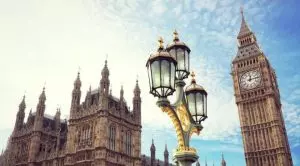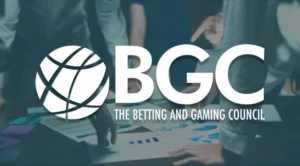 Michael Dugher, the chief executive officer of the UK gambling industry’s trade body, shared that he supported the evidence-led approach of the Government to its White Paper on gambling.
Michael Dugher, the chief executive officer of the UK gambling industry’s trade body, shared that he supported the evidence-led approach of the Government to its White Paper on gambling.
The Betting and Gaming Council (BGC) which represents the UK gambling sector has addressed some Members of Parliament’s recent accusations, saying there is no evidence to support an alleged link between problem gambling and advertising of sports betting services. The chief executive officer of the main lobby group of the country’s gambling industry told the Culture, Media and Sport Committee that licensed and regulated gambling and betting operators strongly welcomed the White Paper on gambling that was officially published by the UK Government in April 2023, and in particular, the measures recommending the implementation of enhanced affordability checks and the establishment of a new ombudsman.
When committee member John Nicolson asked Mr Dugher whether sports betting adverts on sports grounds that normalise gambling and make it look attractive to children should be fully suspended, the Betting and Gaming Council’s boss said such a measure would be a sensible thing to do if there was any evidence of a direct link between gambling addiction and sports betting advertising and sponsorship deals. He, however, claimed that the Government found no proof of such a link after reviewing all of the evidence.
Committee member Nicolson noted that the English Premier League (EPL) had voluntarily agreed to remove gambling companies’ logos from shirt fronts, claiming that by doing so, the League actually reiterated that such partnerships and advertising did harm to consumers. According to Mr Dugher, this was not necessarily the case. He claimed that the Premier League clubs had, in fact, recognised public concern about the volume and scale of football kits’ branding and responded to these worries.
Most People Gamble on Sports Safely and Responsibly, Michael Dugher Says
 The boss of the Betting and Gaming Council shared that he believed the vast majority of people gamble in a safe and responsive manner. Unfortunately, he noted that in some extreme cases, things got out of control, and compulsive gambling could lead to some devastating consequences. These issues, however, require raising standards, better regulation and the implementation of some restrictions on gambling advertising, and not a full ban on sports betting.
The boss of the Betting and Gaming Council shared that he believed the vast majority of people gamble in a safe and responsive manner. Unfortunately, he noted that in some extreme cases, things got out of control, and compulsive gambling could lead to some devastating consequences. These issues, however, require raising standards, better regulation and the implementation of some restrictions on gambling advertising, and not a full ban on sports betting.
UK customers’ spending on sports betting has dramatically risen over the last decade or so. In 2011, the country’s gambling industry had a gross gambling yield (GGY) of £8.4 billion, which marked a huge increase by growing to £14.1 billion in 2022.
According to Mr Dugher, about half of the country’s adult population, or about 22.5 million people, enjoy betting on sports every month. He, however, noted that a huge chunk of them preferred betting on the National Lottery and shared that, in his opinion, the National Lottery should have been part of the Government’s gambling review.
BGC’s director of standards and innovation, Wes Himes, also confirmed that the UK gambling industry’s trade body has been constantly working to make sure that more protection measures are in place. Mr Himes revealed that the Betting and Gaming Council developed more than 80 measures that have been directly involved in safer gambling legislation and regulation, as well as 11 codes over the last three years. He further noted that problem gambling rates have been falling over the last seven years, saying that the gambling addiction rates have been halved since 2017 to 0.3% nowadays, representing one of the lowest problem gambling rates on a global scale.
The lobby group’s chief executive officer was also asked about the inattentive, lax, and sometimes even negligent checks carried out by some gambling operators, highlighting a £19-million fine that has been recently imposed on William Hill over some customer protection failures. According to the committee members, the monetary penalty was evident proof that the sector experienced certain difficulties to control problem gambling by complying with a bunch of protection measures. Dugher, however, defended the sector, saying there were clearly some regulatory failures, too, and the operators were not the only ones to blame for some deficiencies.
- Author


